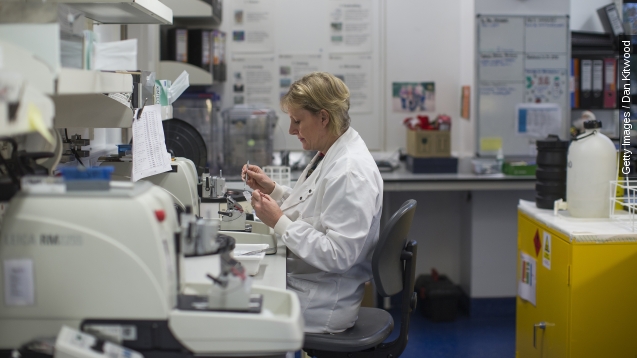A new study says clinical trials for biomedical research are too white. (Video via National Institutes of Health)
Sam Oh, one of the study's researchers, told NPR the lack of diversity in clinical trials can cause confusion over why certain drugs work for some but not for others.
"African-Americans and Puerto Ricans don't respond as well to some of the most common asthma controller medications, and that's really a tragedy since these two groups are the most affected by asthma in the United States, " Oh said. (Video via National Institutes of Health)
While the National Institutes of Heath's clinical trials are representative of the nation's population, research on certain diseases remain largely white. (Video via National Institutes of Health)
"Only 2 percent of cancer studies and less than 5 percent of pulmonary studies have studied enough minorities to provide useful information," Oh said. (Video via National Institutes of Health)
He seems to think the lack of diversity in trials stems from a number of things including a low amount of funding to help reach out to minorities and a lack of diversity among researchers leading the studies.
But the lack of diversity seems to be getting better. The NIH says between 2010 and 2014 some clinical trials saw an increase in black participants from 10 percent to 23 percent.


